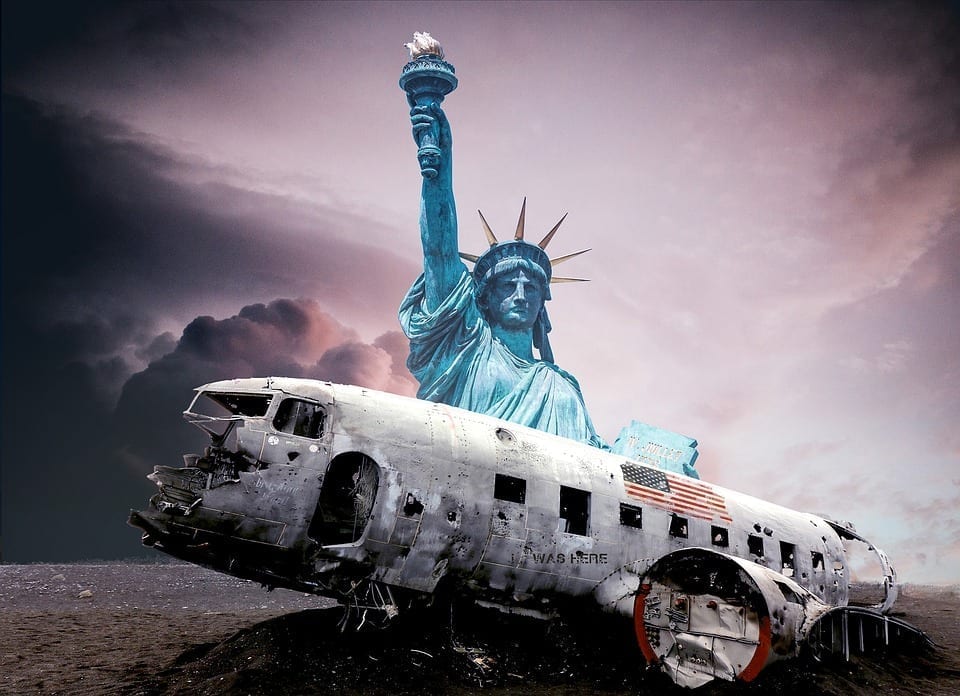A broke, isolationist America seems set to withdraw from the role of global hegemon. Will passing the torch be smooth or painful? And who will pick it up?
For the better part of the 19th and early 20th centuries, the British Empire was the major global power. Governing a fifth of the world’s population and controlling a quarter of the land area, the British spread their cultural influence to places as far-flung as Australia, Canada, India, and West Africa. After two harrowing World Wars, though, the British were spent. In February 1947, the British found themselves passing the torch to the United States. Unable to muster the resources to defend Turkey and Greece from creeping Soviet influence, they let Washington know they were done. While Britain still rules a scattering of islands, they haven’t acted like an empire since the U.S. took the lead in the nascent Cold War.
Especially since the collapse of the Soviet Union in 1991, when the Kremlin lowered the hammer and sickle flag for the last time, the United States has shouldered the role of global hegemon. The dollar remains the world’s reserve currency, we have troops deployed around the world, and American presence (or absence) plays a major role from the United Nations to the Paris Agreement. Unfortunately, there are signs that American power is in retreat, and that we may be passing the torch before too long.
Consider: last week the Centers for Disease Control and Prevention announced that they would be downsizing the effort to prevent global disease epidemics. Just four short years ago, we pledged to lead the global fight against the worst Ebola outbreak in history, to the tune of $750 million. Now, in the Trump era, that money is running out, forcing the U.S. to scale back its global role in protecting human health, as we retreat from 39 out of 49 countries of concern. Some of these, like China, Pakistan, Haiti, Rwanda, and the Congo, are among global hotspots for emerging infectious diseases.
America’s new isolationism is also visible in the Sahel region of Africa, where Trump has withdrawn from leading a multilateral force assisting African Union troops against Islamic State fighters. In our absence, France is coordinating the effort by attempting to secure international funding to continue the mission.
Our closest allies have sensed the change in the air. In Germany, foreign minister Sigmar Gabriel criticized Trump’s “America First” agenda, observing in December that the U.S. has moved from treating the world as a global community to “a fighting arena where everyone has to seek their own advantage.” Now, according to Gabriel, “Germany can no longer simply react to U.S. policy but must establish its own position …even after Trump leaves the White House, relations with the U.S. will never be the same.”
Further examples abound, but on the surface, this may be what many Americans want. For years, there have been mutterings that “America can no longer afford to police the world,” and Trump rode into office based partly upon that sentiment. It’s also one of the few issues on which the current President and his predecessor agree. Additionally, the United States is in no position to fund new global military adventures. On track to borrow $1 trillion (up 84% from last year) largely to provide immense tax cuts for corporations and the wealthy, we’ll barely have the resources to keep our President in Big Macs.
Americans may be looking forward to navel-gazing isolationism, but passing the torch has its costs, too. If we care less about the world, the world will care less about us. We won’t get away with calling the shots any longer. They’ll find workarounds for what we used to provide. Scientists and business leaders will move to more happening places, and other hotbeds of innovation will arise. The world will move on. We’re not irrelevant yet, but each passing year will bring us closer to backwater status.
To whom are we passing the torch? China, perhaps? In 2017, China overtook the United States in scientific publications. And through the purchase of American pork giant Smithfield, Shuanghui Group, a Chinese company, now greatly influences the political and business landscape in Iowa, managing it for their own national interests. Maybe it’s a good time to start honing our ability to pronounce Chinese names, and learning the language in preparation for the growth of Chinese firms in the United States, much as the world had to learn English in the last two centuries.
Or maybe the flame will simply fizzle out.
What remains to be seen is if we’ll be passing the torch in as friendly and affable a way as the British passed it to us, as Olympians hand it off; or if ours will look more like the tiki torches held aloft by white supremacists chanting their slogans in Charlottesville last year. For the sake of American dignity and our place in the history books, let us fervently hope for the former.

Related: Complexity’s Costs and Collapse


Join the conversation!